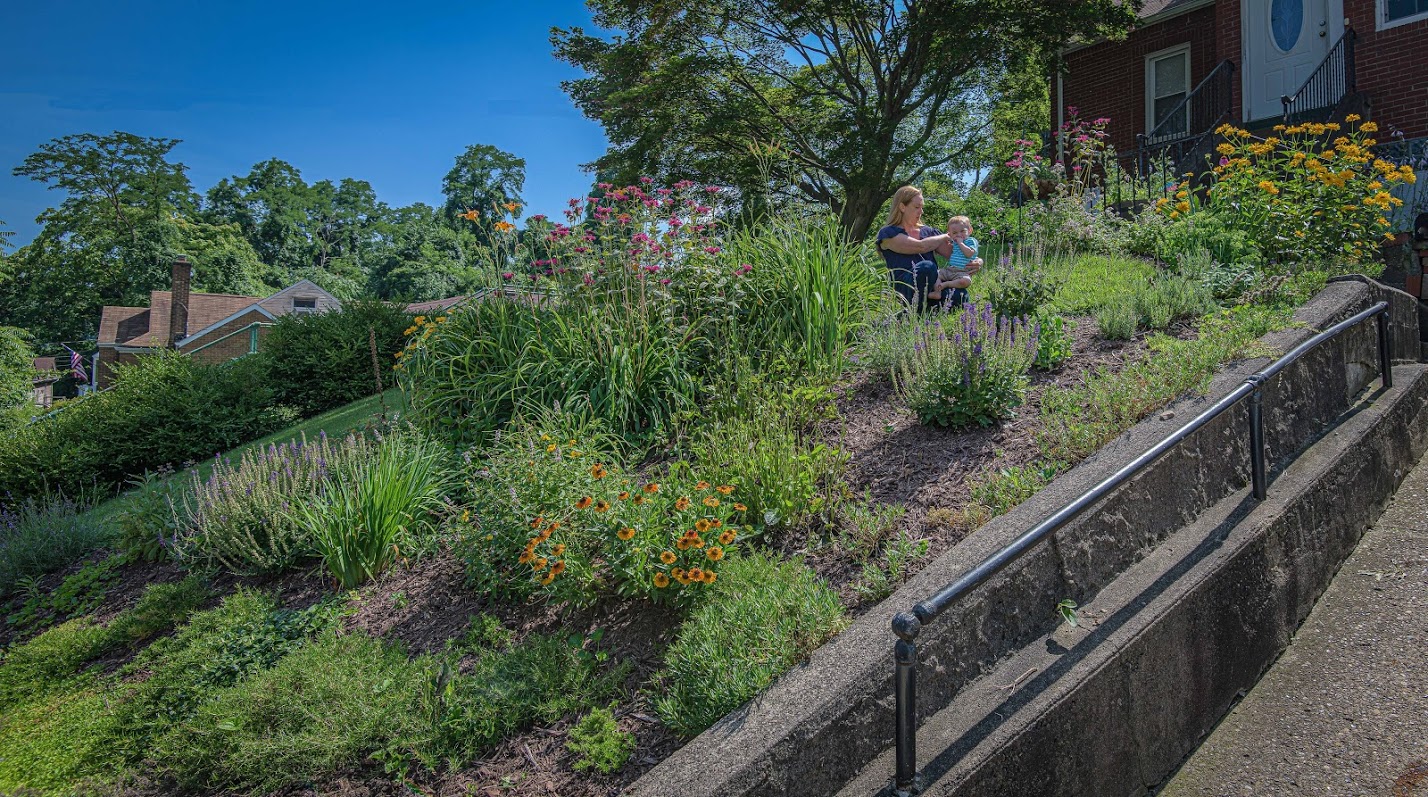Blog

Small Gardens, Big Impact: The Marker Garden, Hazelwood
Small Gardens, Big Impact is a new series of blog posts showcasing garden excellence at local homes. Published as part of our Greener Gardening series, each entry will pay a visit to one of our green-thumbed neighbors to discover how they made their own lawns and gardens beautiful and sustainable.
Hazelwood resident and Phipps member Mary Gantz Marker's garden is a testament to beauty, simplicity and Mary’s commitment to sustainable landcare methods. She designed and cares for the garden herself with the help of her husband, Dan, and encouragement from their toddler Paxton.
What we find inspiring about the Markers’ garden is that it has replaced the grass of their sloping front yard, exchanging the job of mowing on steep slopes with that of tending flowers with vibrant colors and changing blooms. “My goal was to transform the grass and weeds into a perennial garden," Mary says. "I started working on it in 2016, starting with a border along the driveway and then expanding across the front of the property in subsequent years.”
Mary spent time observing the area before planting. “I noted how the sun moves over the slope in front of the house and chose plants suited to full sun lower on the slope and partial sun higher on the slope where there is shade from the house.” She used plants that are drought resistant and deer tolerant. “Deer regularly make passage through the yard, making deer-resistant plants necessary,” said Mary.
Mary used plants that she found already planted on the property, putting the right plant in the right place. “I relocated and propagated many plants from other areas on the property," she notes. "For example, the daylilies were previously planted in the shade and did not bloom. On the front slope, they bloom and grow dense enough to help suppress weeds.”

In addition to daylilies, this sloping perennial garden is full of diverse plants for human and wildlife use. Mary grows a diverse selection of plants to attract birds and beneficial insects, including bee balm, catmint, salvia and lavender. The lavender she uses for teas and scented items. Plant blooms are staggered throughout the year in order to support insects and provide continuous beauty.
Growing plants on the hillside helps to reduce the amount of rainwater running off the property, since plant roots absorb water and slow its movement. Mary practices tough love, only watering plants until they are established and never waters the lawn. She also uses mulch to retain soil moisture and compost and organic amendments to improve soil fertility. She has compost bins on site in which she transforms her kitchen scraps and yard waste to healthy soil amendments.
From beautifying the neighborhood to supporting the urban ecosystem, The Marker Garden is a wonderful example of a sustainable garden with a big impact. Want to follow Mary's example? Start with our sustainable landcare principles and practices. To nominate a garden for our Small Gardens, Big Impact series, email jolshock@phipps.conservatory.org.
Photos © Paul g. Wiegman

